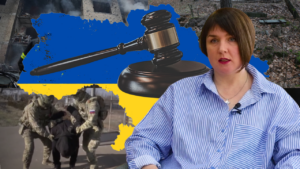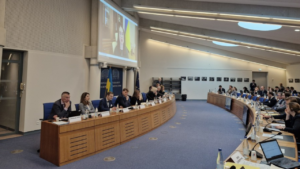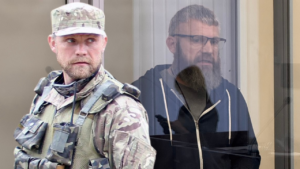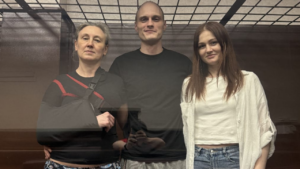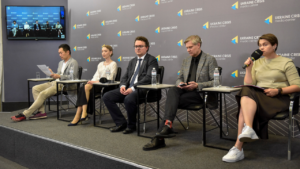Convicting Putin: how the full-scale war changed Ukraine’s attitude towards the crime of aggression
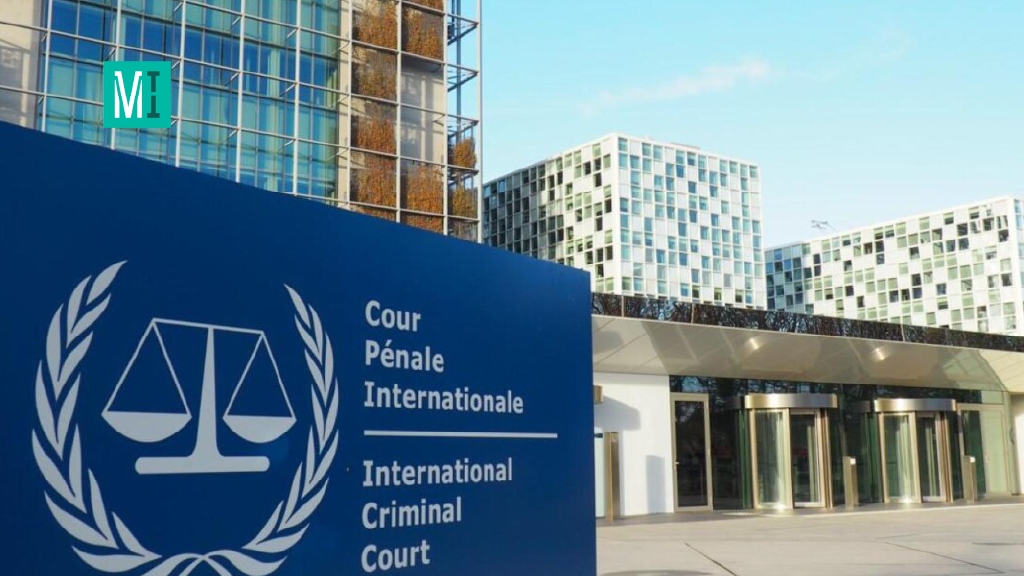
“The beginning of the end of Russia’s impunity for the crime of aggression” – this is how Andriy Kostin, the Prosecutor General of Ukraine, characterized the inauguration of the International Center for the Prosecution of Crimes of Aggression against Ukraine. The Center embarked on its mission in The Hague on July 3. Prosecutors hailing from Ukraine and allied nations will conduct investigations into the crime of aggression. Concurrently, the scrutiny of the crime of aggression continues within Ukraine. From January 2022 to April 2023, 74 criminal proceedings were instigated under Article 437 of the Criminal Code, which pertains to the planning, preparation, initiation, and execution of an aggressive war.
The MIHR delved into how both law enforcement and the judiciary have altered their stance towards the crime of aggression in Ukraine post-February 24, 2022. Additionally, they probed how these investigations align with Ukraine’s official standpoint concerning the formation of an international tribunal to prosecute the leadership of the Russian Federation.
Crime of aggression and Ukraine
In 2014, Russia occupied Crimea, marking the inaugural episode of its aggression against Ukraine. This action satisfied the criteria established in the UN General Assembly resolution 3314 (XXIX) dated December 14, 1974. The ensuing armed conflict in eastern Ukraine further underscored Russia’s belligerence. In order to instigate this conflict, Russia orchestrated and funded factions of “separatists”, deploying its own military forces to augment their efforts. Andriy Yakovlev, managing partner of Umbrella Law Firm and MIHR expert, points out that current international law favors the term “international armed conflict” over “war”, reserving the latter designation for conflicts that have been officially declared.

Andriy Yakovlev, attorney, MIHR expert. Photo courtesy of JustTalk
In 2014, there existed no definitive understanding of the term “crime of aggression” within Ukraine, despite the presence of Article 437 in the Criminal Code. Frequently, the “crime of aggression” was conflated with the overall armed conflict, with any event tangentially related to the war being labeled as aggression.
“In the initial phases, the armed conflict was referred to as the ATO, subsequently renamed the Joint Forces Operation. This terminology differed from the legal terminology we used and how we articulated it,” Yakovlev states.
Combatants siding with the so-called L/DPR faced charges relating to participation in terrorist organizations, while Russians incurred charges linked to the violation of Ukrainian border protocols or other general criminal qualifiers.
Regardless of how we designate Russia’s aggression against Ukraine, there is a distinction to be drawn between an act of aggression and a crime of aggression.
Within the Ukrainian Criminal Code, Article 437 is defined as “Planning, preparing, or unleashing an aggressive war or military conflict, as well as participation in a conspiracy aimed at committing such actions. Conducting an aggressive war or aggressive military actions.”
Andriy Yakovlev says that this definition stands in contradiction to the international criteria set for the crime of aggression.
He believes that only individuals directing political or military actions at the apex of authority can be prosecuted for the crime of aggression.
This designation primarily implicates the upper echelon of the Russian Federation’s leadership. However, Article 437 of the CCU does not delineate this criterion. It also fails to specify the subject of the crime.
Thus, at least until 2019, Ukrainian courts meted out suspended sentences under Article 437 to “rank-and-file” participants in the war. For instance, in 2016, the Slovyansk City District Court issued a conviction against a local resident who battled within the First Slavic Brigade of the so-called DPR. Among other things, the court ruled that the individual “perpetrated acts of armed force amid the Russian Federation’s aggressive war against Ukraine.”
During that period, Russians who were part of the military forces of the so-called L/DPR also received convictions. In April 2016, the Holosiyivskyi District Court of Kyiv found a commander and a sergeant of a special forces reconnaissance group from one of the brigades of the Russian General Staff guilty under Part 2 of Article 437 of the Criminal Code. In the judgment, the court affirmed that the defendants partook in combat operations as members of a terrorist organization, which is what constitutes aggressive military action.
The pivotal issue that facilitated this practice is that Ukraine has yet to ratify the Rome Statute. Had it done so, it would have aided in fully incorporating the regulations of international criminal and humanitarian law pertaining to international crimes (genocide, crime of aggression, crimes against humanity, and war crimes) into national legislation. Concurrently, Ukraine has acknowledged the jurisdiction of the International Criminal Court over crimes against humanity and war crimes.
The alignment of Ukrainian legislation with international humanitarian law would notably bolster Ukraine’s stance in prosecuting crimes committed during the military conflict, ensure the judicial clarity of the verdicts, and resolve the issue of misclassification of offenses.
Andriy Yakovlev encapsulates this dilemma: “It transpires that our country, despite being engaged in war, has not adjusted its legislation to conform with the standard norms of international law.”
The Rome Statute represents the consolidation of all preceding trials and tribunals, serving as a unified legal framework for all international crimes. Despite this, Ukraine continues to favor the Soviet legislative approach to categorize international crimes, rather than ratifying the Statute. This decision inevitably introduces complications.
A comprehensive definition and benchmarks for the crime of aggression are articulated in Article 8 bis of the Rome Statute. The critical point is that the crime of aggression can only be perpetrated by an individual who is in a position to effectively control or steer the political or military actions of a state. This is the definition that Ukraine should adopt.
A shift in perspective post-February 24
In the aftermath of Russia’s full-scale invasion, the methodology for investigating the crime of aggression underwent a transformation. Criminal proceedings were instigated against the upper hierarchy of the Russian Federation, not merely the “L/DPR” militants. Currently, investigators and judges are frequently citing the definitions enshrined in the Rome Statute in their legal justifications.
“This differs greatly from the situation prior to the full-scale invasion. At that time, there was no understanding of the nature of the crime of aggression. Our Criminal Code does not specify who is the subject of this crime. Consequently, the accused were not limited to the top leadership,” explains Yuriy Belousov, Head of the Department for Supervision of Criminal Proceedings for Crimes Committed in the Context of Armed Conflict at the Prosecutor General’s Office.

Yuriy Belousov, Head of the Department for Supervision of Criminal Proceedings for Crimes Committed in the Context of Armed Conflict at the Prosecutor General’s Office. Photo courtesy of JustTalk
According to Belousov, following the full-scale invasion, the Prosecutor General’s Office has aligned itself with international approaches, which stipulate that aggression is a so-called “elite crime”. In other words, it is perpetrated by individuals possessing substantial authority and the capability to influence the organization, planning, and execution of an armed invasion.
“We adhere to an informal, unwritten rule, ‘general+’: when it involves the military, we initiate proceedings against individuals occupying positions akin to that of a general. That is, they command extensive military units. From there, we proceed to the upper echelons – the Minister of Defense of the Russian Federation, the heads of other law enforcement and intelligence agencies of the Russian Federation, and top political officials. The latter group fostered the atmosphere or conditions conducive to the invasion,” Belousov elaborates.
He mentions that the Prosecutor General’s Office is currently addressing a “cardinal case of aggression.” Its defendants include generals, military district heads, and the Chief of the General Staff of the Russian Armed Forces. Yuriy Belousov further adds:
“From our perspective, it is necessary to amend the practice and consider individuals occupying senior leadership roles as the subjects of the crime of aggression. In other instances, alternative qualifications should be applied, such as war crimes. Soldiers who infiltrated Ukraine as part of the Russian armed forces or armed groups cannot be the subjects of criminal aggression. They are combatants; they cannot be prosecuted for violating territorial integrity or under Article 437 of the Criminal Code. They can only be tried for war crimes (if they have indeed committed them – MIHR)”.

Russian suspects in the cardinal case involving the crime of aggression
In the judgments handed down between 2015 and 2019, the accused are members of the so-called L/DPR, whose involvement in the crime of aggression is confined to participation in combat operations. Currently, the courts underscore that they are influenced by the criterion delineated in the Rome Statute, which mandates that the accused must control and direct the military and political activities of a state at the highest echelon.
For instance, in May of this year, the Dnipro District Court of Kyiv convicted, in absentia, Russian Vice Admiral Alexander Vitko, who was the commander of the Russian Black Sea Fleet in 2014, of waging an aggressive war. He was charged with orchestrating the annexation of Crimea.

Alexander Vitko headed the Russian Black Sea Fleet in 2014. Photo courtesy of Novynarnia
The verdict, spanning more than 160 pages, dedicates a separate section to the crime of aggression. The court elucidated the concept of “waging an aggressive war” comprehensively, referencing international legal documents and the Rome Statute.
The panel of judges observed that Article 437 of the CCU does not restrict who can be the subject of a crime. However, the court opines that it is prudent to consider that the actions proscribed by Article 437 possess “an international legal origin and throughout the evolution of international criminal law pertained to an extremely limited range of subjects.”
The Court underscored that, within the purview of Article 8 bis of the Rome Statute, this crime is deemed a leadership crime. The deeds and position of the former Black Sea Fleet Commander Vitko align with this criterion. He was the architect, orchestrator of the plans, one of the primary individuals responsible for preparing for the war, and he executed it.
Crime of aggression and the tribunal
Ukraine is advocating for the establishment of a special tribunal that would prosecute Russia’s top leadership for the crime of aggression. The Prosecutor General’s Office anticipates that this international judicial entity will be capable of adjudicating cases against the Russian president, while the national judicial system will manage proceedings against Russian ministers, MPs, or commanders implicated in the war.
“Presently, there are gaps in the mechanisms for holding the top leadership of the state accountable for the crime of aggression. There is no mechanism to bring Putin, Lavrov, or Mishustin to justice. The International Criminal Court, as well as our national courts, cannot try them because they have immunity by virtue of their positions,” articulates Yuriy Belousov.
Officially, the prosecutor’s office advocates for an international tribunal, not a hybrid tribunal rooted in the Ukrainian law enforcement and judicial system.
“Primarily, if it is a Ukrainian court with international elements, its decisions can always be disputed. Can a national court, even with an international element, for instance, interrupt the personal immunity of the head of state? There are serious doubts, and Putin will always be able to appeal the decisions of this tribunal. Therefore, it should be an exclusively international tribunal with international judges,” Belousov insists.
The second rationale for contesting the hybrid format is the potential risk of indefinitely postponing justice. After all, during martial law, no one will alter the Constitution to create a special court.
According to Belousov, the International Center for the Prosecution of the Crime of Aggression against Ukraine, now established in The Hague, should construct a case on the crime of aggression, and then, upon the establishment of the tribunal, submit the collected materials and evidence to it for examination.
“It’s worth noting that international tribunals are supplementary mechanisms, with limited resources. They will not be able to entertain cases against many individuals. However, it may be more than just Putin, Lavrov, or Patrushev. We understand that the remainder is our responsibility. We will prosecute them within the territory of Ukraine or in collaboration with other countries within their national judicial systems,” concludes Yuriy Belousov.
Simultaneously, there are risks regarding how Ukraine will prosecute Russia’s top military and political leadership. Andriy Yakovlev underscores that a state strategy based on the norms of international humanitarian law should exist. If Ukraine prosecutes “ordinary” soldiers for the crime of aggression, instead of “leaders” as stipulated in the Rome Statute, they will have the ability to lodge complaints with international courts. After all, Article 7 of the European Convention prohibits the conviction of crimes for actions that do not constitute a criminal offense under international law.
Andriy Yakovlev stresses that to validate Ukrainian sentences against Russian high-ranking officials, MPs, or military leaders, Ukraine must align its legislation with international standards and accurately qualify international crimes.
Such attempts have already been initiated. Specifically, in 2021, the Verkhovna Rada passed the law “On Amendments to Certain Legislative Acts of Ukraine on the Implementation of International Criminal and Humanitarian Law” No. 2689, but the president has not yet signed it. The human rights coalition “Ukraine. Five in the Morning,” which documents the crimes of the Russian army in Ukraine, has repeatedly urged the president to do so.
Andriy Yakovlev emphasizes that Ukraine should have ratified the Rome Statute a long time ago. He asserts that this is our “homework” in the absence of an international tribunal:
“The international tribunal is established by the UN Security Council, a setting in which Russia possesses the veto right. Forging a tribunal through alternative means often encounters criticism regarding its legitimacy. The expert community lacks a unanimous viewpoint concerning the formation of the tribunal beyond the stipulations of Chapter VII of the UN Charter. Some posit that a representative ballot from the UN General Assembly could yield the desired outcome. Yet, the question remains: can it issue binding resolutions? Furthermore, what quantity of votes ensures the establishment of a legitimate institution?”
The attorney adds that there are no barriers to prosecuting Putin and the Russian leadership for crimes against humanity within the purview of the International Criminal Court. The Rome Statute provides for this.
“We likely need to contemplate whether it’s worth expending such resources on establishing a tribunal instead of ratifying the Rome Statute and persistently investigating war crimes,” concludes Andriy Yakovlev.
According to the Prosecutor General’s Office, 671 individuals have been notified of suspicion as part of the primary case of the crime of aggression. This involves not only Article 437 of the Criminal Code but also related charges, such as encroachment on Ukraine’s territorial integrity (Article 110 of the Criminal Code).
Specific individuals served with suspicion include: the commander of the 22nd Heavy Bomber Aviation Division of the Russian Armed Forces, implicated in targeted missile attacks on Ukraine’s energy facilities; the commander of the Central Military District of the Russian Federation, accused of leading an attempted takeover of three Ukrainian regions; the commander of the Russian Black Sea Fleet, suspected of ordering cruise missile strikes on Ukraine; employees of the Central Bank of the Russian Federation, under suspicion for implementing the ruble as a substitute for the hryvnia in occupied territories; and finally, the commander of the Eastern Military District of the Russian Armed Forces, linked to the failed operation aimed at capturing Kyiv.

Anastasia Zubova, MIHR journalist


